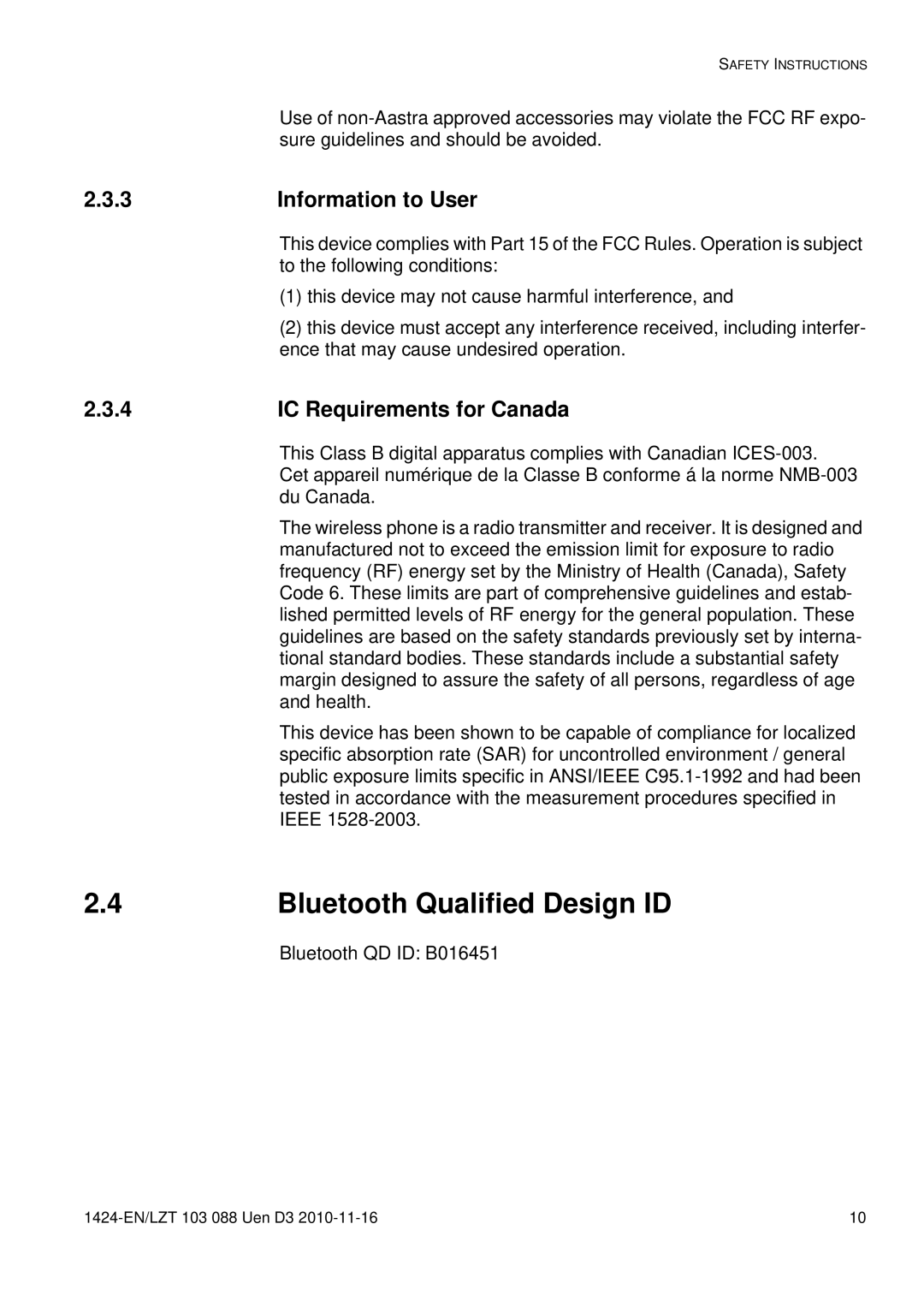| SAFETY INSTRUCTIONS |
| Use of |
| sure guidelines and should be avoided. |
2.3.3 | Information to User |
| This device complies with Part 15 of the FCC Rules. Operation is subject |
| to the following conditions: |
| (1) this device may not cause harmful interference, and |
| (2) this device must accept any interference received, including interfer- |
| ence that may cause undesired operation. |
2.3.4 | IC Requirements for Canada |
| This Class B digital apparatus complies with Canadian |
| Cet appareil numérique de la Classe B conforme á la norme |
| du Canada. |
| The wireless phone is a radio transmitter and receiver. It is designed and |
| manufactured not to exceed the emission limit for exposure to radio |
| frequency (RF) energy set by the Ministry of Health (Canada), Safety |
| Code 6. These limits are part of comprehensive guidelines and estab- |
| lished permitted levels of RF energy for the general population. These |
| guidelines are based on the safety standards previously set by interna- |
| tional standard bodies. These standards include a substantial safety |
| margin designed to assure the safety of all persons, regardless of age |
| and health. |
| This device has been shown to be capable of compliance for localized |
| specific absorption rate (SAR) for uncontrolled environment / general |
| public exposure limits specific in ANSI/IEEE |
| tested in accordance with the measurement procedures specified in |
| IEEE |
2.4 | Bluetooth Qualified Design ID |
| Bluetooth QD ID: B016451 |
| 10 |
